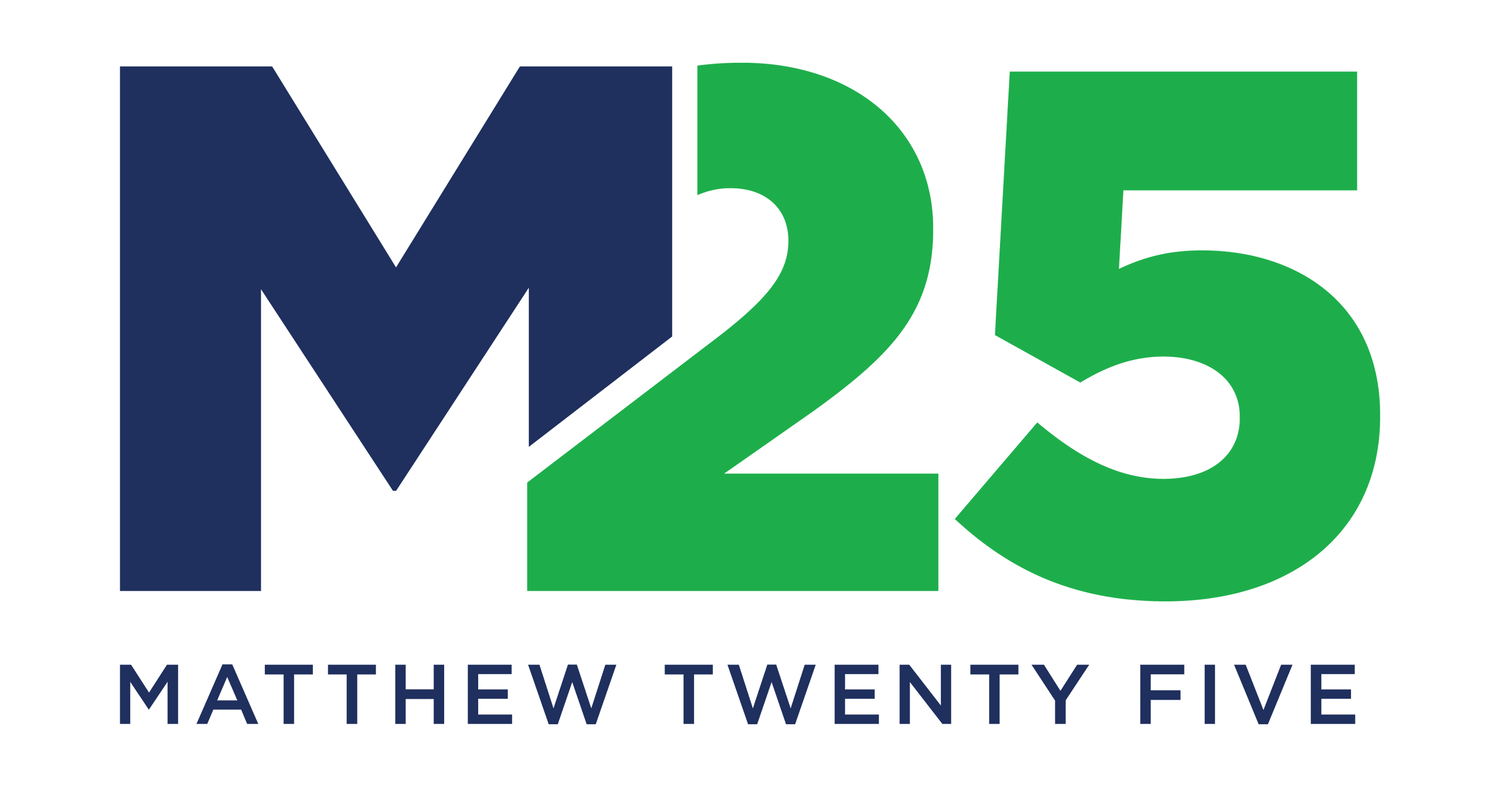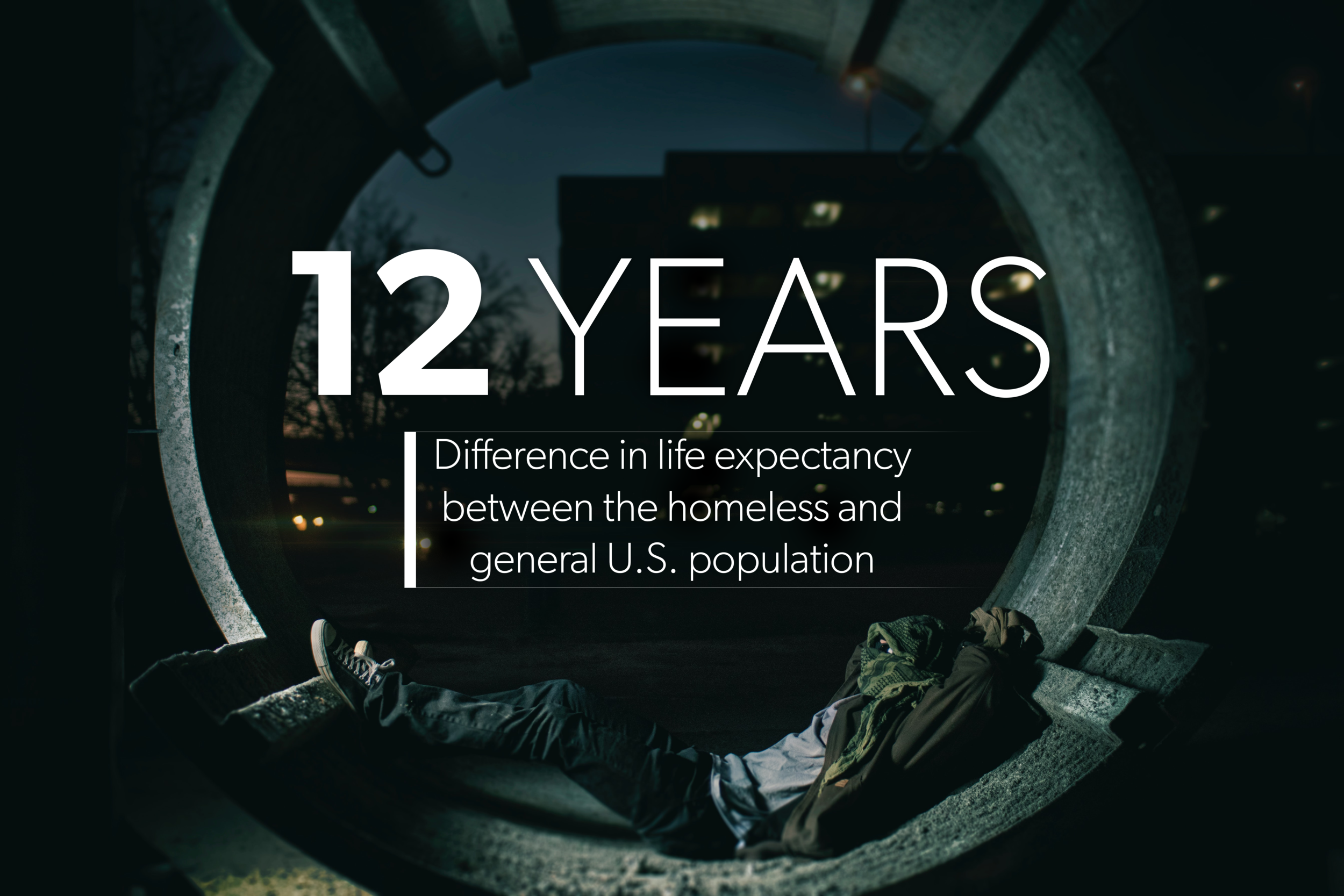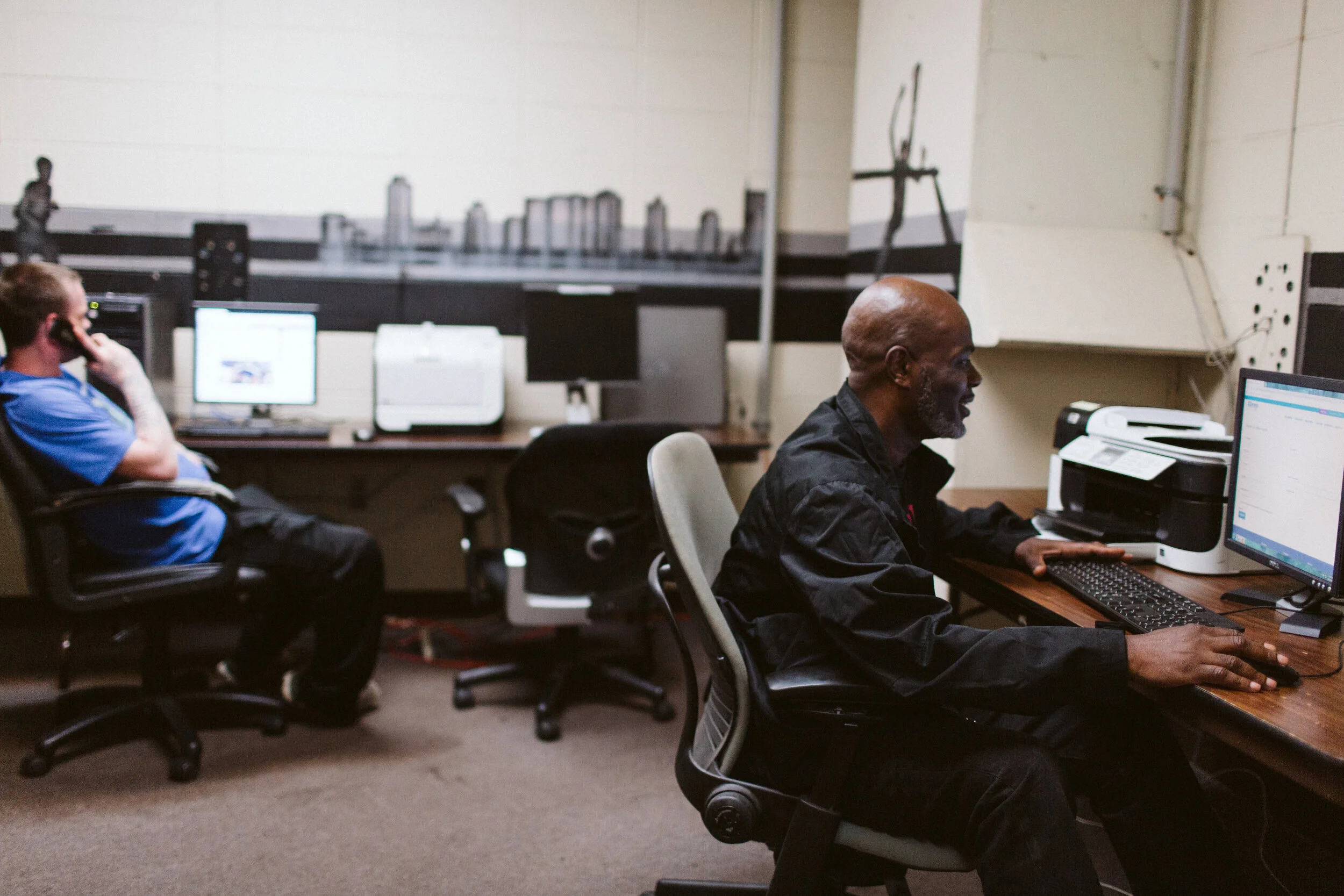TRANSITIONAL HOUSING PROGRAM
Our service-intensive transitional housing program offers men comprehensive supportive services that enable them to return to independent living and obtain employment. In addition to beds and meals, we bridge the gap from homelessness to permanent housing by providing case management, employment and housing placement assistance, substance abuse recovery support, as well as life and social skills development and training.
We operate with four key initiatives in mind for our men: Learn, Work, Save, and Progress. To be accepted into our program, men must be referred by a partner agency and show devotion to turning their lives around. Our men are assigned a case manager who will develop an individualized service plan, targeting goals that should be reached prior to and after leaving the program.
Every day we encounter veterans and men from Middle Tennessee who are homeless or in danger of becoming homeless. They need safe, secure housing to help avoid the viral risks of being on the streets.
(1) LEARN
In their first 30 days, residents focus on themselves. Men are required to attend five weekly meetings and demonstrate commitment to their individual recovery, as each man undergoes an assessment of his personal needs. Homelessness goes deeper than a lack of jobs and housing, as many need to relearn the way they think and behave about money, family, and home. Mandatory classes help them acquire positive work habits and critical life skills.
(2) work
During the next 30 days, veterans in our program are required to find work if they are unemployed. Our staff works with residents to help them secure full-time employment or upgrade jobs that earn enough to sustain permanent housing. Homeless men must overcome employment obstacles that many don’t think about: lack of a mailing address/phone number, lack of appropriate clothing, inability to create a resume, transportation issues, possible history of arrest and incarceration, and lack of job training, skills or professional references.
Veterans utilizing the Matthew 25 computer lab to search for employment opportunities. Having access to a desktop computer and reliable internet is critical in today’s job market.
(3) Save
After finding or upgrading employment, men focus on saving money for permanent housing. As the vast majority of our men have no banking account, we provide a secure, on-site safe for our men to use in lieu of their own personal banking. In addition to classes focused on financial literacy education, we implement a mandatory savings program for our men. As residents do not incur housing expenses while staying at our facility, we enable them to save up to 75% of what they earn to use for rent deposits and move-in expenses.
(4) progress
As men move through each phase of our program, the primary objective is to help residents effectively and efficiently remove barriers on the path to recovery and independent living. Many of our men have grown accustomed to living from day to day. We help them look beyond tomorrow by setting goals in key life areas and requiring continuous progress towards those goals during each phase. As residents progress through the program, they are called on to give back by becoming a model and supportive resource for men that are still working through earlier phases.
PROGRESSIVE HOUSING PROGRAM
Our Progressive Housing Program is built for men who have completed a transitional housing program, but may not be ready for completely independent living. While not as intensive or structured as our transitional program, progressive housing offers men assistance and guardrails to stay on track as they move towards the goal of permanent housing. This is an ideal program for men who (1) are doing well in recovery, but feel they can still benefit from a small degree of structure and accountability, or (2) have a significant barrier to housing such as an eviction or felony, and could benefit from case management to help work through these issues.
Matthew 25 progressive housing features 17 one-bedroom efficiency apartments located on the third floor of our residential facility, just one floor above our transitional housing program. These apartments come fully furnished, and residents in the program share community bathrooms and a kitchen. Each man signs a one-year lease with the possibility of up to two six-month extensions.
AFTERCARE CASE MANAGEMENT PROGRAM
Our Aftercare Case Management Program is for veterans who were previously homeless and are transitioning into permanent housing from programs such as GPD or the VA’s Healthcare for Homeless Veterans Contracted Residential Services Program. We also accept and assist veterans who are coming from non-VA transitional housing programs.
This program aims to improve retention of housing by providing veterans with individualized case management, providing knowledge, referrals and other components to help the veteran thrive once housing is secured. Men receive home visits at least once every three months, as well as education in finance and budgeting, tenants right and lease agreements, and meal/food security planning.





